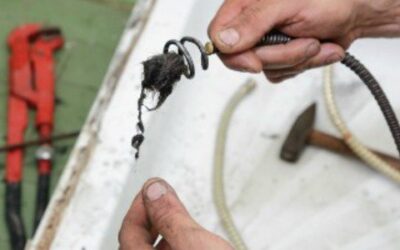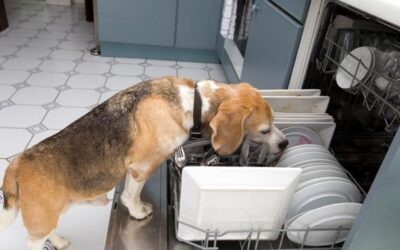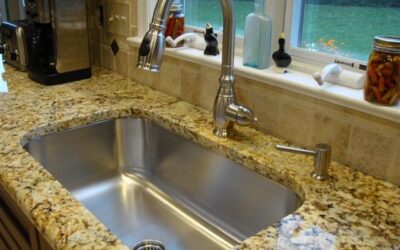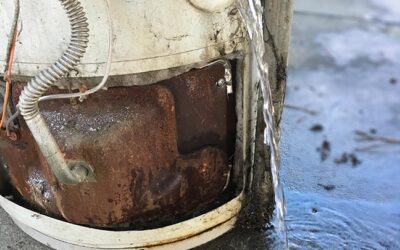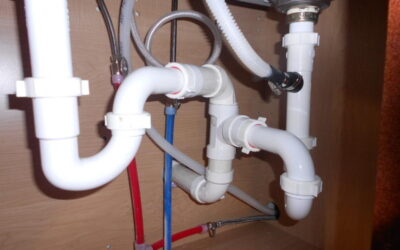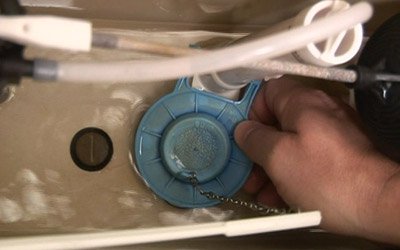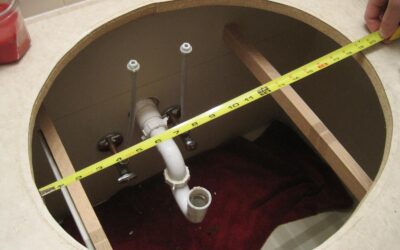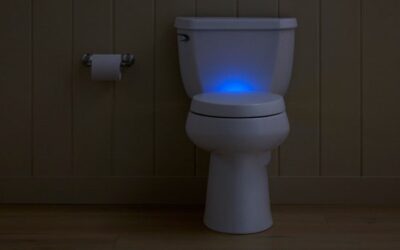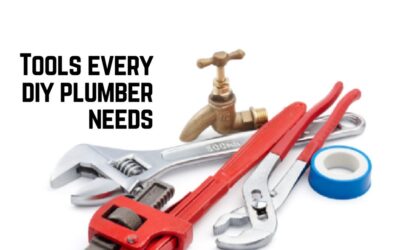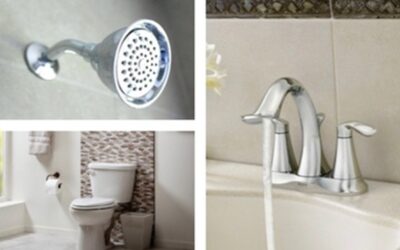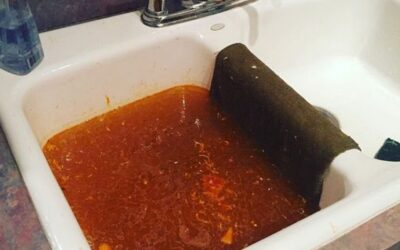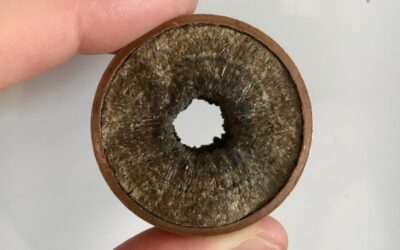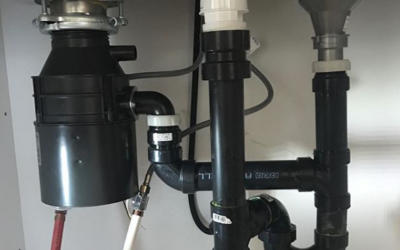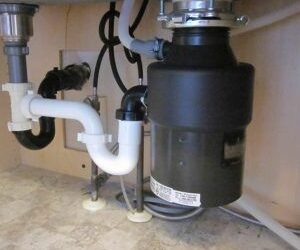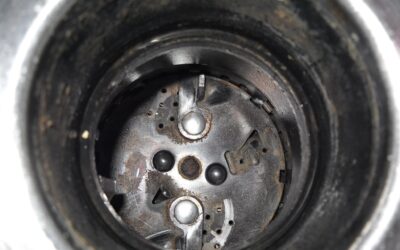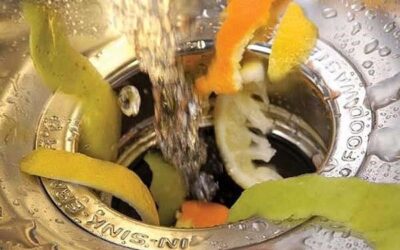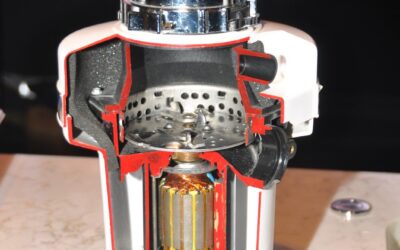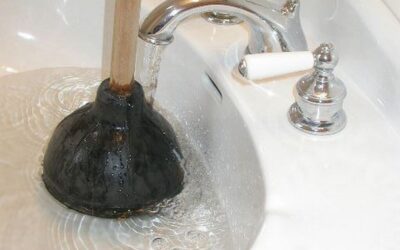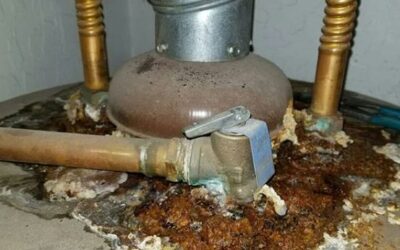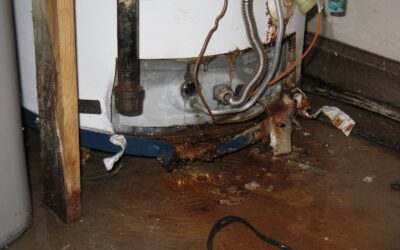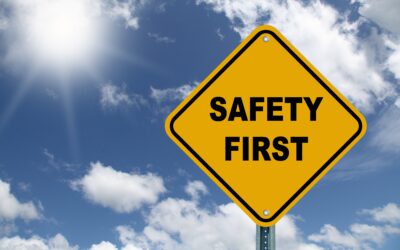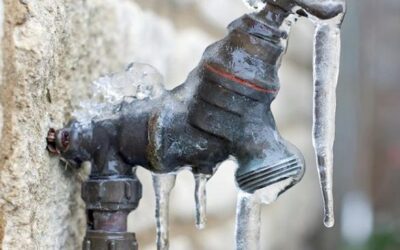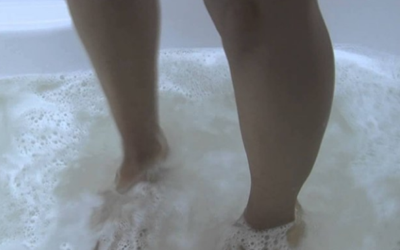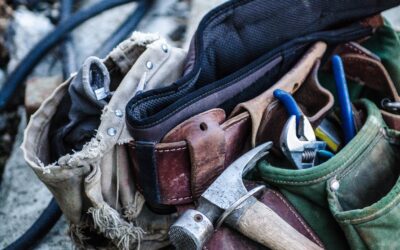Got a Bad Clog? Be Careful When Playing With Snakes
Tried everything to clear a clog in a sink or toilet and nothing has worked? Before you jump to a drain snake, be sure you know the different types and how to use them. It’s also important to understand the potential for damaging your pipes if used incorrectly. The Drain Snake A drain snake has…
Is it time for a new dishwasher?
Every night, we depend on our dishwashers to do a chore we all dread. We get so used to the convenience that when it starts to show signs of failure, it can throw your routine off. The reality is that, while we trust our dishwashers to be reliable, we don’t conduct regular maintenance until something…
How to Replace Your Sink
Replacing a sink can be a big job. If you have a fairly standard drop-in or under-mount sink, then the replacement process may be somewhat easier to complete. However, it is worth noting that any time you end up connecting and disconnecting piping, there is a chance that leaking or flooding may occur. So, if…
Water Heaters: Should You Consider a Water Heater Leak Detector?
With the average water heater holding about fifty gallons, a leak in your tank can create a lot of damage. And, depending on where your water heater is located and how long it is until the water is shut off to the tank, it could spread into several rooms – ruining carpets, damaging flooring, and…
Plumbing DIY: All About Drain Traps
Ever wonder what that curved pipe is underneath your sink? Today we’re going to boost your plumbing knowledge and put a new skill into your DIY arsenal. Understanding the drain trap is a good step that will serve you well for diagnosing those strange odors coming up, fixing nagging leaks, or fighting stubborn clogs. What…
How to Fix a Running Toilet: The Flapper
Running toilets are a common household nuisance. They waste a lot of water, and the sound of the water cycling through begins to sound like a constant stream of money as expensive water slips away. But fear not, fixing a running toilet is easier than you think. In this post, we’re going to cover a…
Can You Fix or Replace a Bathroom Sink on Your Own?
Replacing major elements – or even the sink itself – can be a massive undertaking for the average homeowner. But if you’re a do-it-yourselfer with the right plumbing knowledge, you can tackle it. Does the sink need to be replaced? The elements of your bathroom sink that wear out most frequently are the faucet, drain,…
Time For a New Toilet?
Although toilets have a longer lifespan than other home appliances, they will need to be replaced eventually. Here are a few signs it’s time for a new toilet. Multiple Repairs Most toilets have a lifespan of fifty years, so it may seem like replacing a toilet isn’t necessary. But how many times have you had…
Bathroom Facelift on a Budget
Are you tired of looking at your same old dreary bathroom? You want to remodel but don’t want to spend a fortune right now. No worries, we’ve got your back. Here are some tips for doing a bathroom facelift on a budget. Focus on hardware and accents On solid surfaces in the bathroom – like…
Love DIY? Basic Plumbing Tools To Get the Job Done
Want to start tackling some of those smaller plumbing jobs around the house? Here are some of the essential tools you’ll want to keep on hand to save a few bucks and take on those running toilets, replace showerheads, or fix a leaky faucet. Adjustable Wrench or Locking Pliers: You’ll need the ability to grip…
Bathroom on a Budget: Small Things with Big Impact
You don’t have to spend a fortune on a remodel to make a big impression – especially when you focus on a smaller room like a bathroom on a budget. That’s because each element is more noticeable in a smaller space. And that can apply to both functional and decorative elements. It might be as…
When to Replace Your Garbage Disposal
Although a lot can be done to prolong the lifetime of a garbage disposal, sometimes replacement is necessary. Here are some signs you may need a new garbage disposal. Want to learn how to fix a jammed garbage disposal? Click Here If the garbage disposal is operating poorly and is older than eight years or…
Lehigh Valley’s Dirty Tap Water Secret
You may be surprised to learn that your tap water isn’t so clean. Most water running into homes throughout the U.S. contains moderate to heavy levels of contamination from industrial and environmental pollution. These contaminants can range from natural minerals (e.g., Iron, Lime, or Calcium) to human-made chemicals and inorganics that slip into the water…
Emergency Plumbing Breinigsville, PA
Whether You Have a Leak or Need Pipe Emergency Repair, Contact Us! When the time comes, do you know who to call? How about an award-winning family-owned plumbing company that’s been serving the Breinigsville, PA for over 60 years? We keep our Mr. Rooter trucks fully-stocked on and on standby, offering emergency plumbing services in Breinigsville…
Plumbers Breinigsville, PA
Plumbers in Breinigsville, PA Full service plumbing company located in the Lehigh Valley, serving Breinigsville, PA and surrounding areas since 1954. With an experienced team of Plumbing Technicians, Drain Technicians, Master Plumbers and Master Carpenters, we offer plumbing repair , drain cleaning, sewer cleaning, clogged toilet repairs, water line repair and water line replacement, drain…
Three Things to Remember When Fixing Your Garbage Disposal
A garbage disposal can present certain risks when repairing it. Here are some things to be aware of when fixing your garbage disposal. Garbage Disposal Power Connections If you have a stuck garbage disposal and neglect to turn switch and power to the unit off, it could suddenly unfreeze and start spinning again. This is…
Is My Garbage Disposal Compatible with My Plumbing and Electrical?
Although most garbage disposals are built to be compatible with nearly any kitchen, you may need to adapt a garbage disposal to your power system or pipes. Here are a few things you should consider about making your garbage disposal compatible with your kitchen. First, it’s necessary to understand how your garbage disposal connects to…
Is Horsepower Important in a New Garbage Disposal?
A garbage disposal is one of the few kitchen appliances where horsepower is something to consider in your search for a new unit. But how much does it matter? A garbage disposal’s horsepower output is a good indicator of how reliable it is – and what it will be able to grind up. Garbage disposals…
How to Fix a Jammed Garbage Disposal
Got a jammed garbage disposal? Here are some easy steps you can take to try and clear it yourself. Check to see if there is power going to the disposal. If you turn on the disposal and hear a hum, that indicates that there is power to the unit. Push the red reset button on…
How to Clean Your Garbage Disposal
Got smells? Here are three easy ways to clean out your garbage disposal and get it smelling fresh again. Lemon Cut several small pieces of lemon that will easily grind in the disposal will leave it smelling like citrus. Ice Put several ice cubes into the disposal. Turn on the disposal and turn on the…
Things You Should Never Put down the Garbage Disposal
Want to keep your garbage disposal running for years? The easiest thing to do is to avoid putting certain things into it that can cause clogs are damage. Coffee Grounds. Talk to any plumber, and he’ll have war stories for you about the dreaded coffee ground sludge clog. Best way to avoid it? Do not…
Garbage disposals: How do they work?
Often we assume garbage disposals are simply comprised of a motor powering a set of rotating blades that work to cut up our food. However, garbage disposals are a lot more complicated than that. Here’s how they work: Inside the garbage disposal, a metal plate with a hole in the middle spins around. The hole…
The Stubborn Clog (And How to Fix It!)
We all have that one drain in our house that just refuses to clear. You’ve probably tried many different fixes, and none of them seem to work. Luckily, there are other ways you can try to clear this stubborn clog if you have the time and money. Before fixing the clog, you may want to…
Water Heater: An Annual Inspection Can Eliminate Surprises
Want to avoid waking up to find your shower water won’t heat up? Then it’s a good idea to have your water heater inspected annually. Here are some of the things that a professional will do during an annual water heater inspection to help keep you in hot water all year around. Is it time…
Water Heater Maintenance: The Most Common Problems
What are the most common problems for water heaters? Is it time to call a professional? Water Leaking from Bottom of Tank: While this can be due to normal condensation, it’s important to be able to make sure it’s not a hole in the tank that’s causing a leak. No Hot Water: If you have…
Water Heater Efficiency and Safety: a Few Quick Tips
What’s the right temperature? For energy savings and ensuring the safety of small children, many consumer organizations recommend setting your water heater thermostat to 120 degrees. However, it’s also important to know that water temperatures below 120°F can enable unhealthy bacteria to grow inside your water heater. So, consider both when determining an appropriate temperature for your…
Plumbing Tips: How to Deal with Frozen Pipes
Picture this. It’s the middle of November on a Sunday morning, and you’re deep in a Pennsylvania freeze. Go figure. You turn on the water, but nothing comes out. Frozen pipe. Maybe it’s your first home, or you’re new to the area. Or perhaps you’re in a new house and didn’t realize you had an…
Plumbing Maintenance: Detecting a Slow Drain Before It’s a Problem
Slow drains can feel like a problem that just never goes away. You think you’ve cleared it – and it’s back a week or two later, water pooling in the sink. Although it may not seem like a big deal, it may be a sign of a bigger problem. Click here for treating clogged bathroom…
Bathroom Drain Maintenance: Don’t Wait Until It’s Too Late!
Bathroom sink drains can creep up on you. One day they’re working fine, then the drain begins to slow. How do you prevent your bathroom drain from slowing? Click here for treating clogged bathroom drains. Here are a couple of tips to keep your drains running smoothly. Clear the drains routinely Every week or two, take…
Water Heater Maintenance: Do-It-Yourself or Call a Professional?
When it comes to your water heater, how do you know if it’s better to do-it-yourself or call a local plumber? Here are a few guidelines to help you decide. Is your water Heater making noise? Are you able to diagnose the problem? Once you know the symptoms of your water heater, you can search…

